The mud crab (Scylla serrata) is a delicacy in Fiji and can fetch high prices. However, over-crabbing in recent times has led to the decline in mud crabs. This has resulted in juvenile or undersized crabs being sold in markets and roadside stalls on a regular basis.
Recent reports in Fiji's media have highlighted the commendable work done by Ministry of Fisheries officials in monitoring the sale of undersized crabs and the confiscation of any such crabs smaller than the minimum size set by Fiji laws.[1]
In this bulletin, we outline the applicable law in Fiji that stipulates the legal sizes of crabs that may be harvested or sold, and the powers of the Ministry of Fisheries officers in the enforcement of such laws.
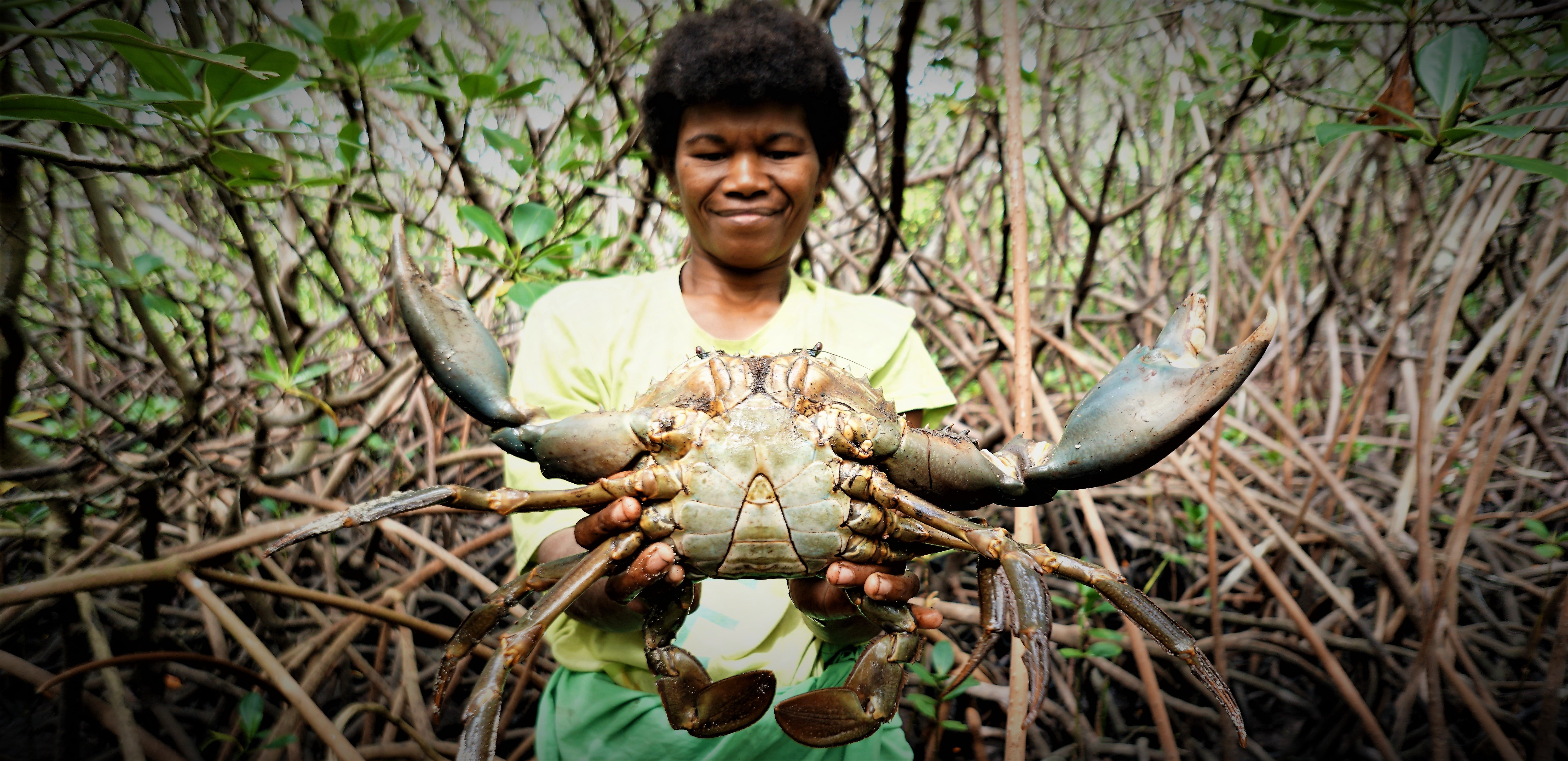
Things are just bigger in Macuata. This mud crab captured by Leniana on the Macuata coast exceeds minimum size and shows what a mature mud crab can and should look like. Leniana explained that women catch fish for feeding their families, while men catch to sell.
Minimum Size
The Fisheries Act, 1941 and its Regulations regulate coastal fishing activities and is applicable to mud crabs whose natural habitats include the estuaries and mangrove areas.
Regulation 19 of Fiji’s Fisheries Regulations, therefore, prohibits a person from killing, taking, selling, offering or exposing for sale any crab of the species Scylla serrata that measures less than 125mm (or 5 inches) across the widest part of the carapace or shell. This Regulation is important as it allows the crabs to reach maturity and reproduce.
Apart from minimum sizes, it is important to bear in mind that other restrictions must be observed. For example, there are restrictions in place limiting the types of fishing nets and net mesh sizes that may be used to catch fish. For the purposes of the Fisheries Act and its Regulations, "fish" includes crustaceans, and the net restrictions therefore extend to include harvesting crabs by these means. Other restrictions involve the use of explosives and poison. For more information on what fishing activities are considered legal/illegal, please see our earlier bulletin that can be found here.
Monitoring and Enforcement
It would be futile to have restrictions in place without proper monitoring and enforcement. To that effect, the Fisheries Act, 1941 and Offshore Fisheries Management Act, 2012 make the following provisions:
- Fisheries Act, 1941 – section 7(1) gives authorisation to any licencing officer, police officer, customs officer, honorary fish warden and any other officer empowered by the Minister to require any person engaged in fishing to exhibit his licence, apparatus and catch and where there is reasonable suspicion that any offence has been committed, take the alleged offender, the vessel, apparatus and catch, without summons, warrant or other process, to the nearest police station or port.
Any person who obstructs the above-mentioned person from executing his duties shall be liable to a fine not exceeding one hundred dollars or to imprisonment for a term not exceeding six months.
- Offshore Fisheries Management Act, 2012 – section 53 gives general powers to authorised officers within Fiji, in Fiji’s fisheries waters and beyond Fiji fisheries waters in relation to any conduct whether or not that conduct occurred in Fiji fisheries waters and in accordance with any international conservation and management measure, applicable bilateral or multilateral treaty, or arrangement, to which Fiji is party.
Concluding remarks
The proper regulation, monitoring and enforcement of the minimum size of crabs that can be harvested will ensure that Fiji’s fisheries resources will be sufficient for now and future generations.
A key to ensuring that undersized crabs are not caught for consumption or for sale before they reach maturity and are able to reproduce is awareness and proper consultation with those who should be aware of the legal restrictions.
Mud crabs, and how they are caught are also a key part of Fiji tradition and essential for women in fisheries who often have the most significant role in nearshore fisheries. These women preserve traditional knowledge and use traditional techniques to capture mud crabs from mudflats and within mangroves. This is knowledge, along with the mud crabs themselves and their habitats, that is worth preserving.
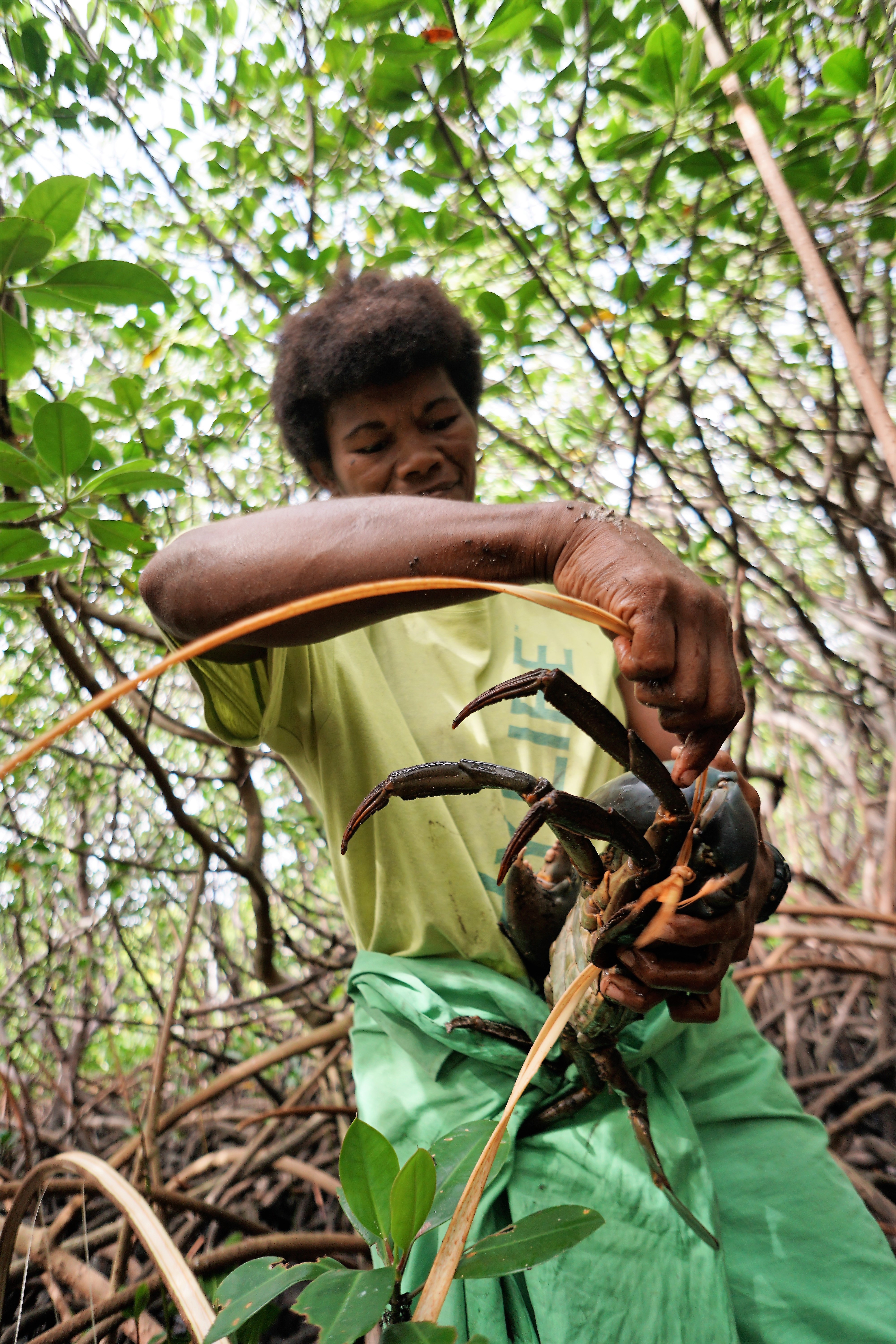
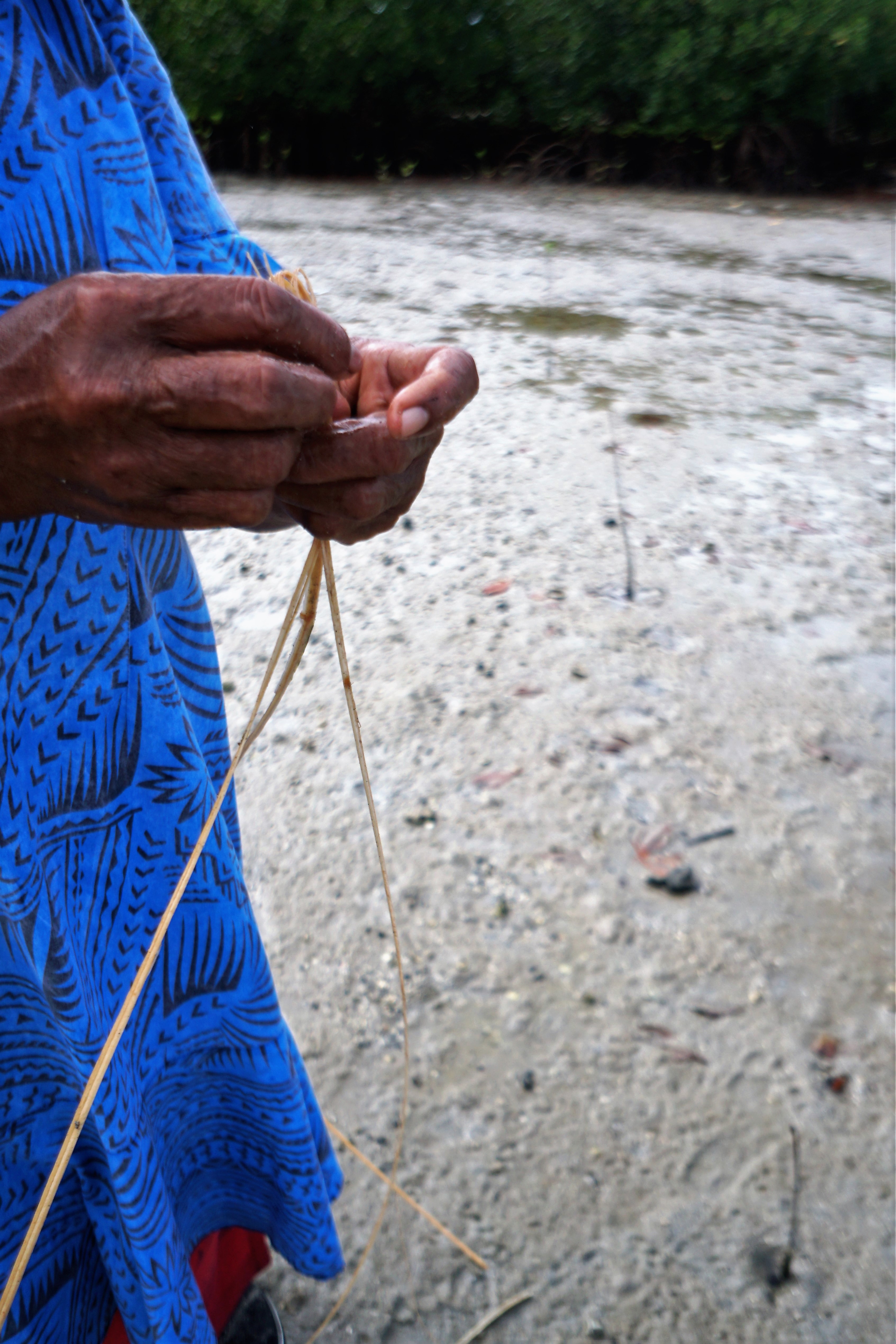
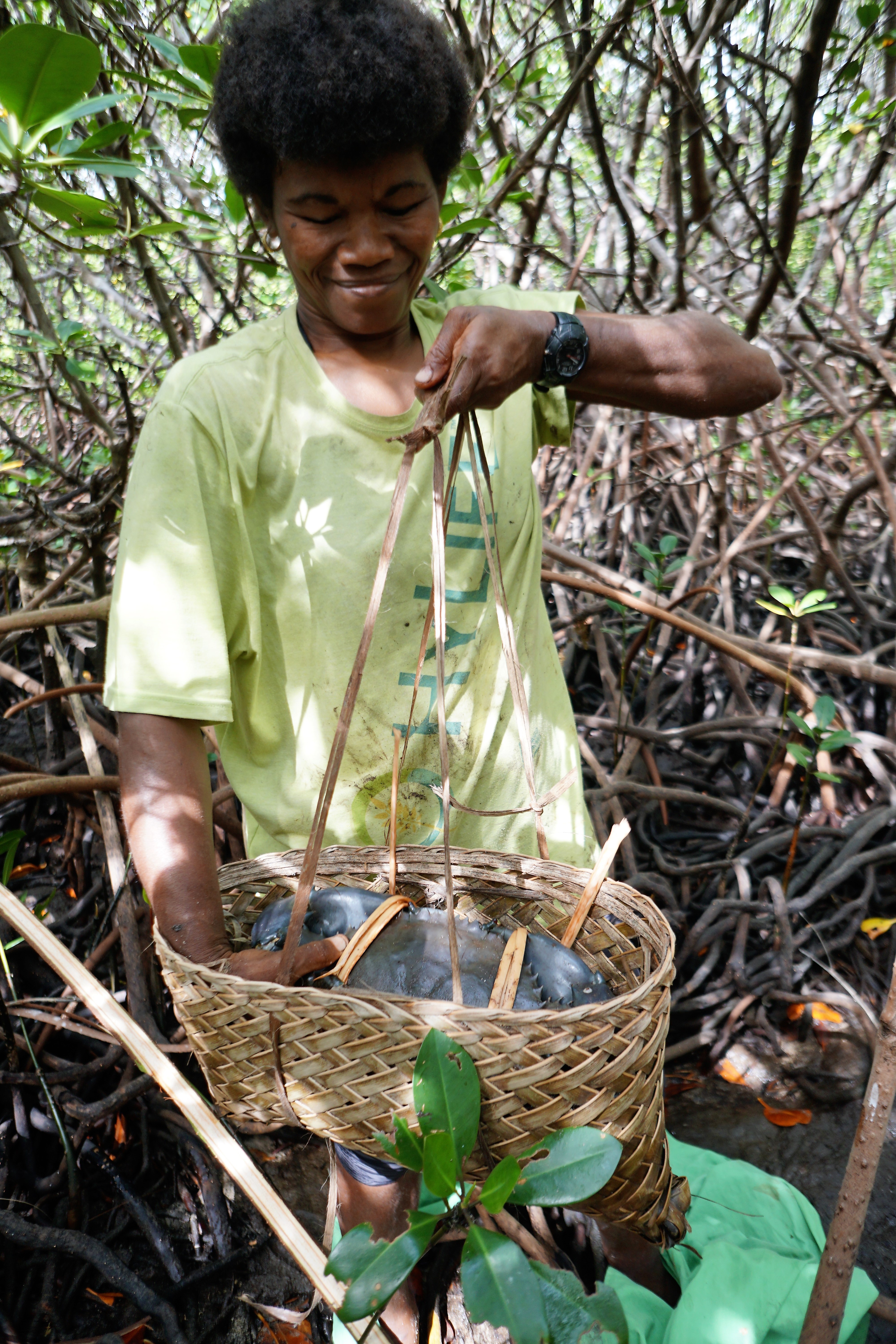
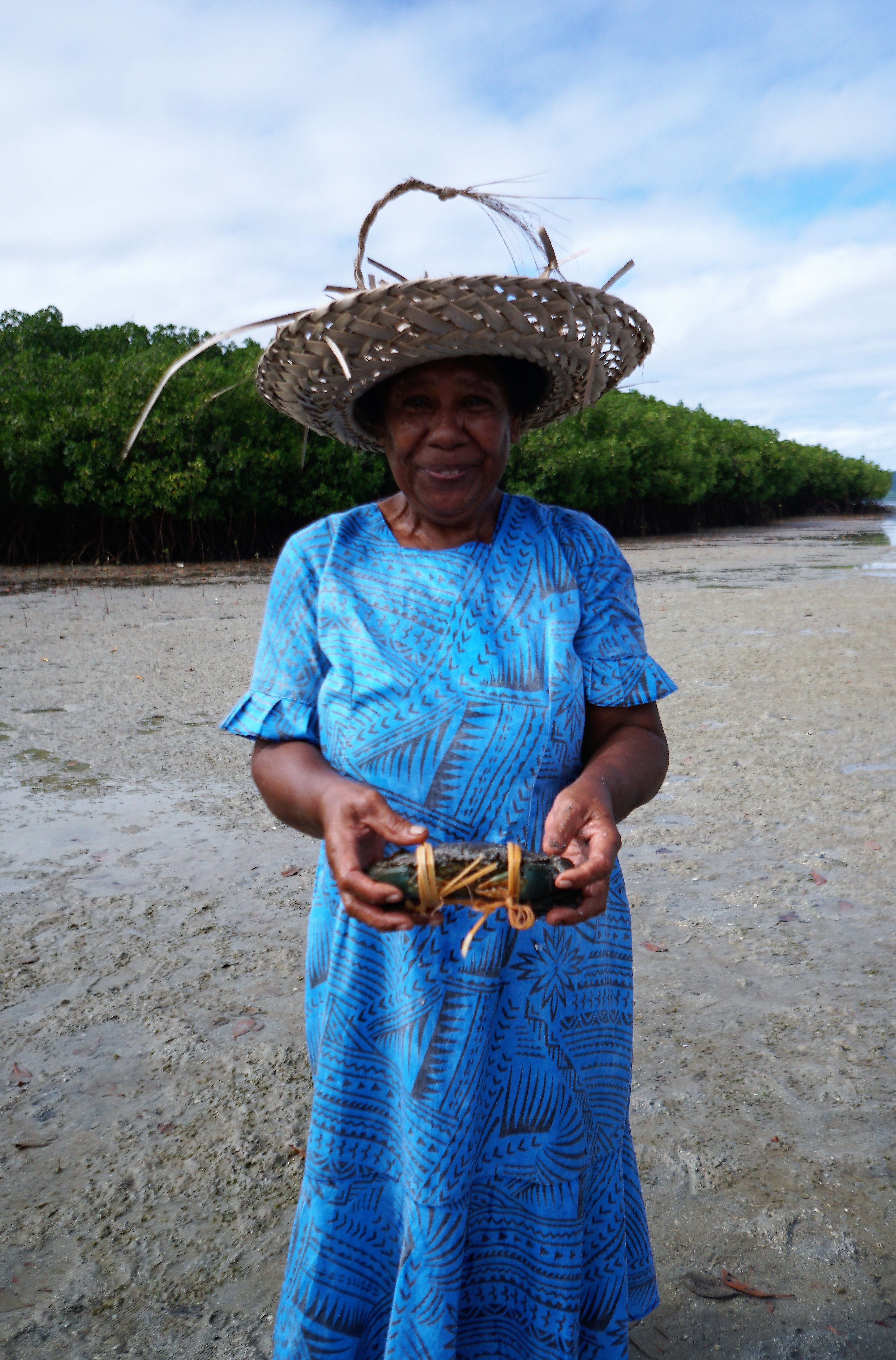
[1] https://www.fijitimes.com.fj/vendors-warned-to-refrain-from-selling-undersized-crabs/
With special thanks to: Nukubati Island Resort for their dedication to marine conservation over many years and introducing us to the women of Raviravi, Nasea and Naiqumu who keep their traditional practices alive.
Photos: James Sloan



